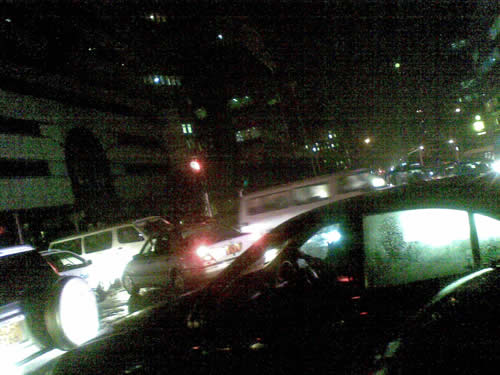Speaking personally: U.S. Ambassador to Zimbabwe
Wednesday, November 9th, 2011 by Varaidzo TagwireyiU.S. Ambassador to Zimbabwe, Ambassador Charles A. Ray, gave a talk at the embassy’s public affairs section in commemoration of Veteran’s Day, which falls on the 11th of November annually. A US veteran himself, having served in the military from 1962-1982, and as one who has been making the effort to completely transition from military to civilian life for the past 29 years, the Ambassador’s credibility on the issue was unquestionable.
“They say a leopard can’t change its spots. Well, each year thousands of military veterans change their spots, and they make the transition back into being civilian,” the Ambassador said. He addressed the transition under the following 3 topics:
1. US govt contributions – GI Bill of rights
The government has taken a legislative approach to helping soldiers, especially through the 1944, Serviceman’s Readjustment Act, which sought to make reintegration into civilian life easier for returning soldiers through providing:
Education
Job training
Job location
Low interest home loans – contributing to the housing market boom in the 60s.
2. Return of Vietnam veterans and eventual recognition of Post Traumatic Stress Disorder (PTSD)
The Ambassador emphasized that the reception a soldier receives on his return home, also has an impact on their readjustment to civilian life. The Vietnam war generated a lot of frustration, protest, anger in American society, which affected the way people treated returning soldiers. This frosty welcome, coupled with PTSD, (mental illness resulting from exposure to combat trauma), meant that these veterans did not do as well at readjusting to civilian society.
Ambassador Charles stated that approximately 20% of the 2,700,000 who served in Vietnam experienced PTSD, which could be very incapacitating flashbacks, extreme anxiety, which affect the soldier’s reintegration. The eventual recognition and establishment of treatment services for PTSD has helped the war vets. Currently, the US Army takes great care to treat and inform soldiers and their families of PTSD in order to combat it.
3.Personal Perspective
“While my story might be easy to read on paper, I can tell you from personal experience, that the transition is something that is accomplished with no small amount of difficulty.” Ambassador Ray said this before explaining some of the things that affected his, not-yet-complete, adjustment to civilian life.
He explained that the military is a highly structured environment where each person has a place with heavy emphasis on discipline, planning, preparation and training. He also explained that there was a sense of camaraderie in the institution, unlike any other in the world and a strong sense of respect for authority and each other. Ambassador Ray expressed his difficulty with the casual way civilians relate to and address each other and even with calling people who are senior to him in the hierarchy by their first name, as this was unheard of in the military.
“In the military, you never have to worry about what to wear”. An everyday task in civilian life, such as, deciding what to wear proved a challenge to the Ambassador for several years. He still maintains a military haircut that he gets cut at a military barber and still wears military shoes.
Many of the skills attained in the military he says have often helped him in his professional career. Though he has come a long way in his transitional journey, the Ambassador admitted that he is still not quite a civilian.
Through his contacts with military and former military people globally, both from regular (military) and irregular forces (rebel forces, child soldiers), the Ambassador says the problem of readjustment are pretty much the same.











